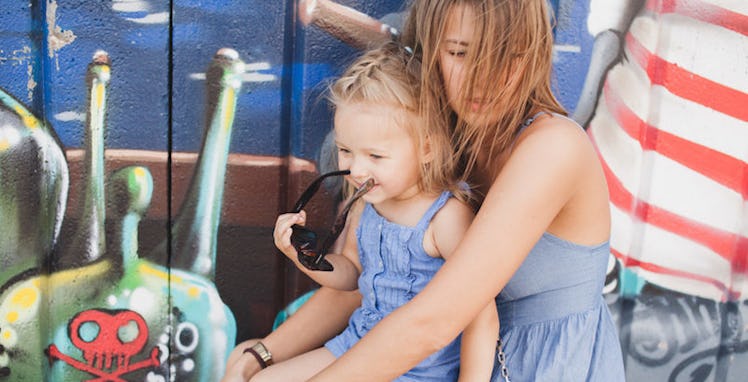
Black Sheep: The Pain Of Being An Artist In A Non-Creative Household
Doctor. Dentist. Lawyer. Investment Banker. Some of you may have grown up in a family bearing one, or more, of these professions.
And if you did, you're probably no stranger to feeling pressure from your parents to follow in their footsteps and pursue one of these careers for a living. At some point or another, we've all felt this pressure; the difference usually lies in just how aggressively our parents imposed it on us.
If you're a first-generation American, like I am, then you might know this story all too well. Our parents came to America from foreign lands with one intention: to give their children better lives than they were given in their homes of limited opportunity.
Many people who emigrated thousands of miles to the land of opportunity wished for their children to be happy, prosperous and financially successful. And to guarantee such accomplishments, they hoped their children would choose careers that showed 'em the money.
Pressure can be an incredibly heavy burden. For those of us who never felt a draw toward the non-creative professions our families chose — whether first-generation American or not —, we feel the pressure from the north, south, east and west. We're constantly compared to others.
We attend parties of cousins, friends and family friends, and dread having to strike up conversations with people because we know we'll be judged. This judgment weighs doubly as much if our passions stray from the "norm."
My mother is a doctor and my sister is a dentist. Growing up in a family of new money and financial stability afforded me privileges for which I will forever be grateful.
But, like any clichéd novel or award-winning cinematic picture, I somehow grew up to be the "black sheep" of the family. From a young age, I was always innately drawn to music.
Upon my suggestion to pursue music, my family suggested that there'd be no money in the field. As I grew older and more conscious of my passion, I tried my hardest to fight my seemingly magnetic pull towards singing and songwriting.
So, I convinced myself I'd become a meteorologist, a lawyer or a banker. Despite the lack of intense pressure placed on me from my family, I still felt as though I had to, in a sense, "repay" them for granting me a luxurious childhood.
But, I found that the more I tried to suppress my musical urges and replace them with investing time in topics to which I was uninterested, the less alive I felt. I would crawl more and more inward and would even, at times, become depressed. One day, after hitting a painstakingly low low, I experienced a revelation:
There are those in the world that are, perhaps, more malleable than others. They have the power to adapt easily and creating, for them, is a desire, but not a necessity. They can live their lives deeming their respective passions as hobbies, or things they turn to in their spare time, things to which they yield half-heartedly.
The rest of the world is made up of steel pipes; we will not bend, because we cannot. Creating, for us, is not only a desire, but also a necessity. We need to whole-heartedly create in order to feel something — anything. We need to create in order to survive.
We need to create because every ounce of pain we feel — every breakup, every loss of life, every goodbye we endure — does not fully recover merely with the coupling of time and the help of others. Our grief must also be channeled through the act of creation if it has any hope of ever dissipating.
The creatives are fully cognizant of the notion that if we wake up one morning and realize we've lived unfulfilled lives because we refused to submit to our passions, we won't leave this earth as ourselves. We'll depart as shells of ourselves.
Inevitably, this second half of the world's beings will choose to pursue their deep-rooted passions, regardless of where their families came from. No one ever said it would be easy.
We simply must become thicker-skinned. Our families might not always understand, agree with or support us, but they will always love us. Still, being a creative in a family of non-creatives has left me constantly second-guessing my choice to pursue music:
Should I feel guilty for "throwing away" everything I know? Everything my mother gave me? Don't I owe my future children the same financial prosperity and comfort by which I was surrounded as a child? Am I letting everyone down? Am I okay with taking a sharp left turn all in the name of being a "starving artist?"
The self-doubt won't go away; I will continue to do a double-take in regard to whether or not my decisions reflect ignorance or a lack of gratitude for the life I was given.
But, I must remind myself that the creatives who stem from straight-lined paths do, in fact, have something to show as thankfulness. We have the memories.
When I have children, I'll tell them the story of how my mother came to the United States to give me the opportunity to have my voice heard in an ocean of millions of voices.